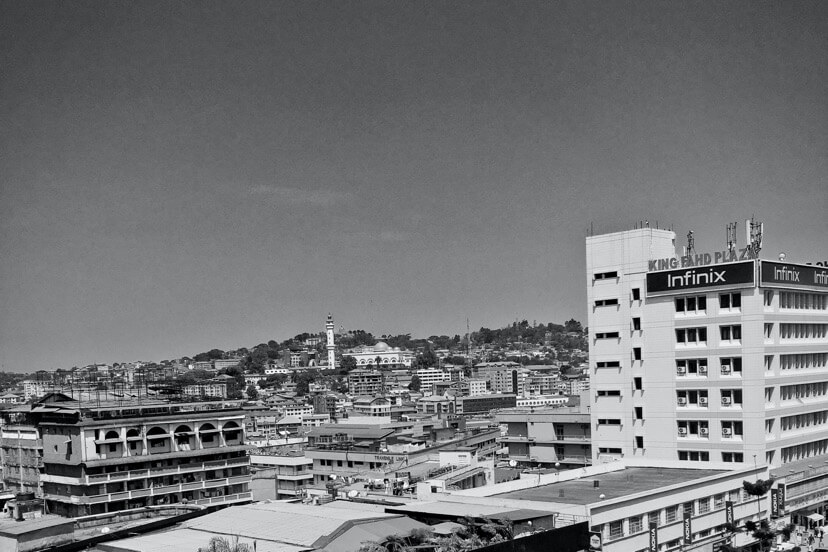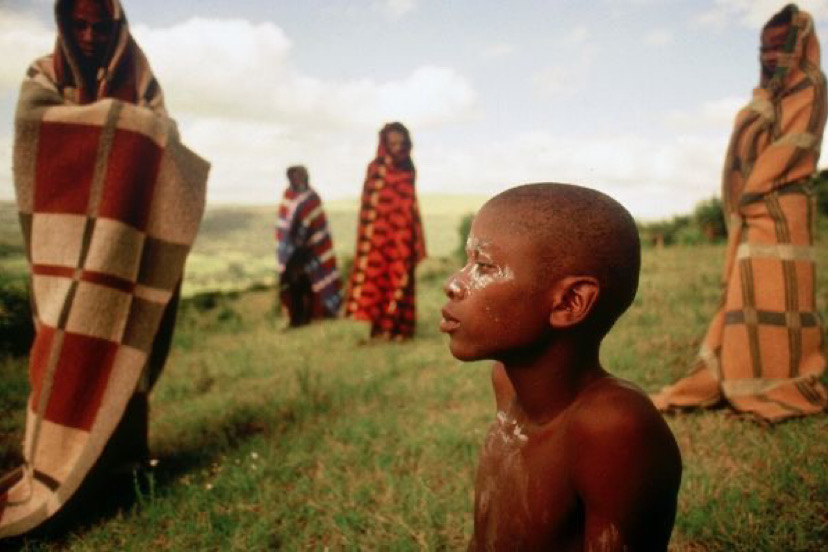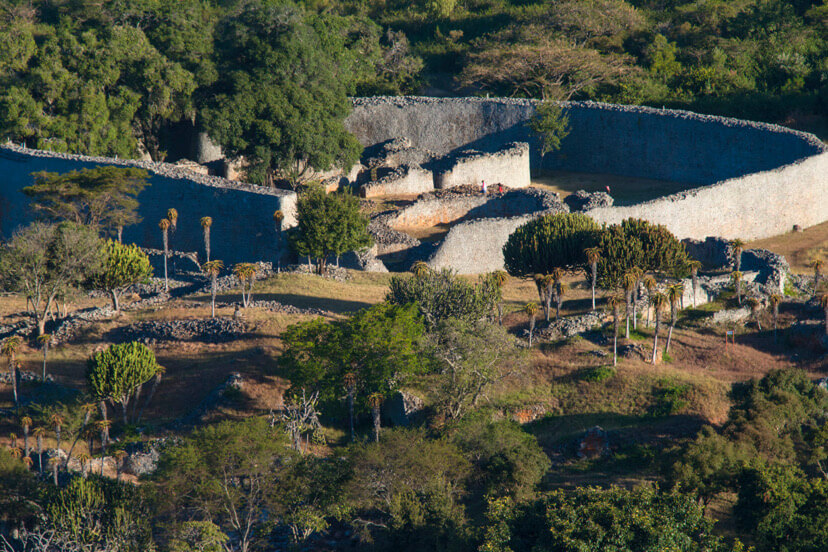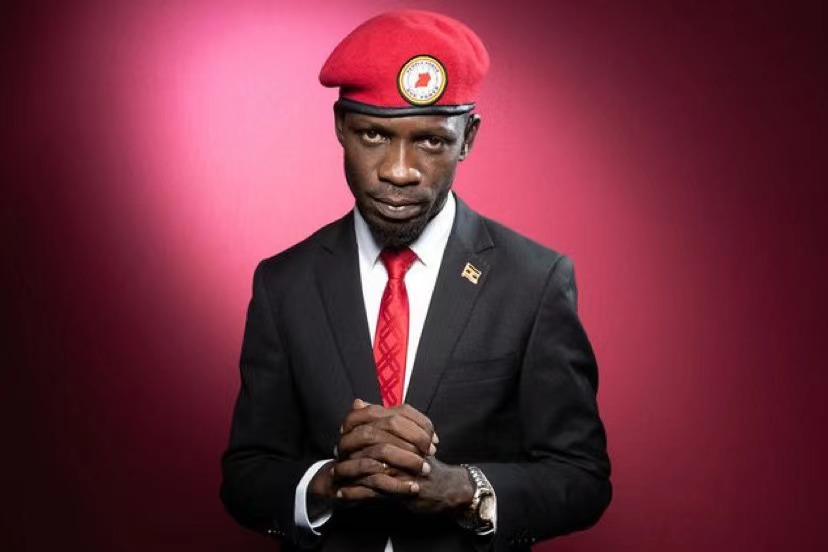I write from somewhere in Liberia. My work has appeared and forthcoming in 20.35: Contemporary African Poets Volume III anthology, The Whale Road, Ice Floe Press, ARTmosterrific, Lolwe, Vagabond city, Ghost Heart Journal, The Minute Magazine, Feral Poetry, Up the Staircase Quarterly, Liminal Transit Review, The Kissing Dynamite and elsewhere. My chapbook (Miryam Magdalit) has been selected by Kwame Dawes and Chris Abani (The African Poetry Book Fund), in collaboration with Akashic Books, for the 2021 New-Generation African Poets chapbook box set.
I.
How can you run away from a home that no longer needs the smell of you? That evening I packed everything and left the house. I was weary and broken. It was 1979, the same year I stepped my feet in Monrovia. The hugeness of buildings amazed the illiteracy deep inside me.
I was stunned of how girls dressed in Monrovia in those days. The moment I saw them I wanted to be like them. I wanted to wear those fancy long jean trousers with wide opening mouths. I wanted to be sinful as them.
The year I got in Monrovia it was the same year my uncle that I came to stay with left the house one morning to protest at the infamous April 14 Rice Riot. He didn’t return home. I never saw him again. I didn’t cry for him. I moved on like the way all native Liberians did. We pretended that our loved ones will one day return like Yeshua Christ.
You know very well how heavily 1979 sat in our throats. You saw everything. Some say it was the year that brought Liberia to where it sits today.
In 1979, I ran away from home. I was tired of the beating. I was eighteen when I left home. Today my child is eighteen and I don’t know where he is now, since I saw him standing over the body of your son.
I don’t know whether Nick told you about my background – about my brutal father that never felt happy having me as his child. I was born in Nimba County in a house of many children; it has been so many years since I last saw them. Before my father died, he warned my siblings to stay away from me and that I am toxic and a disgrace to the family.
Nobody reported that my uncle was among those that got killed during the riot, but I knew it. I knew one day he was going to die. If anyone was going to lay down their life for the native people of this country, it was going to be my uncle.
II.
Nick and I met right after 2003's war, when everyone was eager to be with somebody. I already had a child with no father. His father is probably alive or dead. During the 1989's war, I was dragged out of my home and raped by a rebel one morning. I can still remember his face, but the way he dragged me out from under my bed was terrible. I will never forget how my body was filled with fear.
The rebels beat us with the butts of their guns. We were on the floor begging them to have mercy on us. Then Saah’s father came over me. I saw it in his face, the look men give when they want to have sex. He dragged me by my hair into the hallway. There was blood on my knuckles and knees. I was barely alive by the way he pulled my hair out of my skull. I saw evil in his eyes. I was raped quietly.
I didn’t resist the man; his gun was enough to plant silence in my body. After he was done, he left me on the floor the way every raped victim can be left. I was trembling inside my skin. I couldn’t feel my legs. Saah’s father was evil.
III.
Carrying a rebel’s child was not an easy thing. It’s quite different from carrying other children. If it wasn’t for the war that was eating Liberia by then, I would’ve aborted the pregnancy. Throughout the nine months I sat home listening to the sounds of rain on the zinc and bullet sounds which I have memorized. I was lonely with no family. I felt the loneliness inside my bones.
I felt it deep inside me where blood can no longer flow. I remember the day I got in labor, it was terrible and nobody was home.
How do you push out a child of a rebel from your womb? Is it by splitting the stomach with a knife the way the child’s father did to other pregnant women?
I was home alone fighting to push Saah out of my womb. I was fighting to peel him off me, the dirty blood of his father from womb. His small body was covered in blood like the way his father’s body was covered with blood stains. That day I became a mother of a rebel’s child.
How do you name a child of a rebel? This question puzzled me. I had no idea what his father’s name was. I have no name to give a child that I hate with everything in me. I hated the way he cried, the way he giggled when someone smiled at him. It reminded me of his father. I didn’t give the name Saah to my son, his friend did.
IV.
The child of a rebel - that’s how everyone called my son even up to now. He was not a normal child like the way yours were. I remember the day my six year old son slept in prison when he cut the waist of a neighbor’s daughter with a razor blade. I remember the day he was almost beaten to death for stealing. He was not a normal child. He had no education, no father and I was barely there for him. The war broke us completely until we had nowhere. We were like outcasts living on dump sites. Nobody wanted the child of a rebel playing with their children.
V.
How can you teach your child to be good when he has evil in his blood? How can I mourn for your own son, how can I mourn for my love? How can I mourn for a man who was killed by my own blood?
Living in this place hasn’t been easy. There were times we buried bodies of stabbed boys every day. There were times we kept our daughters indoor because we were afraid of them being raped. What gives Nick the nerves to enter that place at that time of the night?
That Friday I got out from work very late. The sky was filled with few stars. Crickets hummed in wet grasses. I was so eager to reach home, soak myself in a warm water and sleep. I was tired of the work I was doing. Being a maid to people that don’t care about your wellbeing is exhausting.
I walked as fast as my legs moved. The scent of death was stronger than the aromas of soups of the night cookers.At the side of the street opposite my house, I saw Nick’s car parked. There was a huge fear inside me.
How do you mourn for a dead lover killed by your own son? That was the question I asked myself when I saw my son standing over the body of your son.
My son had a kitchen knife in his hand and your son had nothing. My son was a son of a native man and your son was a son of a settler. My son saw himself as inferior to your son and your son saw himself as superior to my son.
It was the same reason my son’s father was part of a group that killed the president who was a settler. Saah stood over the body of your son smiling. He was smiling the same way his father smiled when she was through with me. The knife was wet with the blood of your son.
Nick has never visited me. He only knew that I lived in that place because I told him. Nick has no idea I was a maid for a settler's family that treated me like trash.
I remember the day I was pushed off the stairs by my master’s wife. I said nothing of this to your son, not even when I got burnt by an electric iron that was threw to me by my master. But it’s no reason for my son to kill your son; it’s not your family that treated me like that.
Saah looked deep into my eyes. He was smiling like he had worn a prize. He was happy. Finally he had killed a son of a settler. I sat before Nick’s body. I was confused I had no voice to cry for a man that loved me despite all of the things that come with a settler and native getting into a relationship. Your son wanted to marry me. He loved me but my son killed him.
VI.
Where do I run now?
Where can I hide my body from the eyes of death?
How can I run away from a home that no longer needs the smell of me?











{{username}}{{commentConvertedTime}}
{{commentText}}